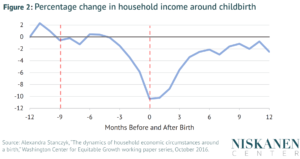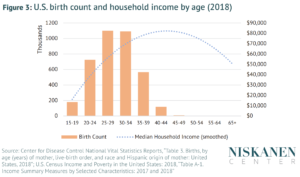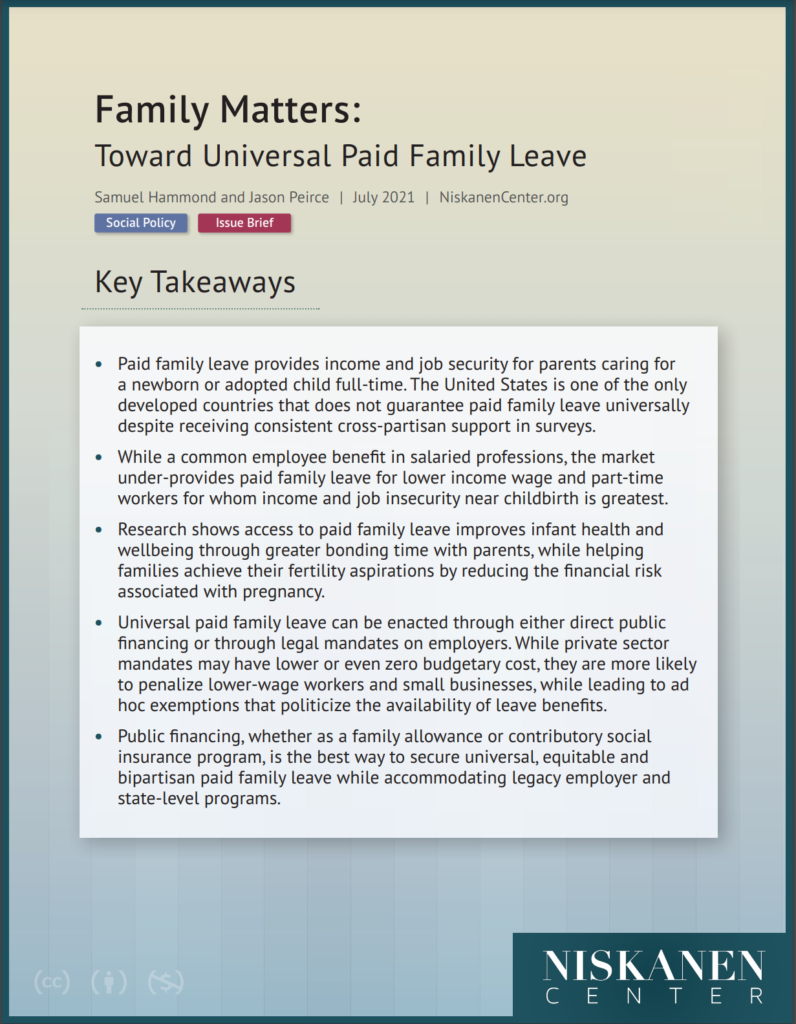Key Takeaways
- Paid family leave provides income and job security for parents caring for a newborn or adopted child full-time. The United States is one of the only developed countries that does not guarantee paid family leave universally despite receiving consistent cross-partisan support in surveys.
- While a common employee benefit in salaried professions, the market under-provides paid family leave for lower income wage and part-time workers for whom income and job insecurity near childbirth is greatest.
- Research shows access to paid family leave improves infant health and wellbeing through greater bonding time with parents, while helping families achieve their fertility aspirations by reducing the financial risk associated with pregnancy.
- Universal paid family leave can be enacted through either direct public financing or through legal mandates on employers. While private sector mandates may have lower or even zero budgetary cost, they are more likely to penalize lower-wage workers and small businesses, while leading to ad hoc exemptions that politicize the availability of leave benefits.
- Public financing, whether as a family allowance or contributory social insurance program, is the best way to secure universal, equitable and bipartisan paid family leave while accommodating legacy employer and state-level programs.
Click here to read the full issue brief.
Figures:
Click to enlarge.



Samuel Hammond is the Director of Poverty and Welfare Policy at the Niskanen Center, and author of The Conservative Case for a Child Allowance.
Jason Peirce is a second-year MA student in the Department of Economics at George Mason University.
